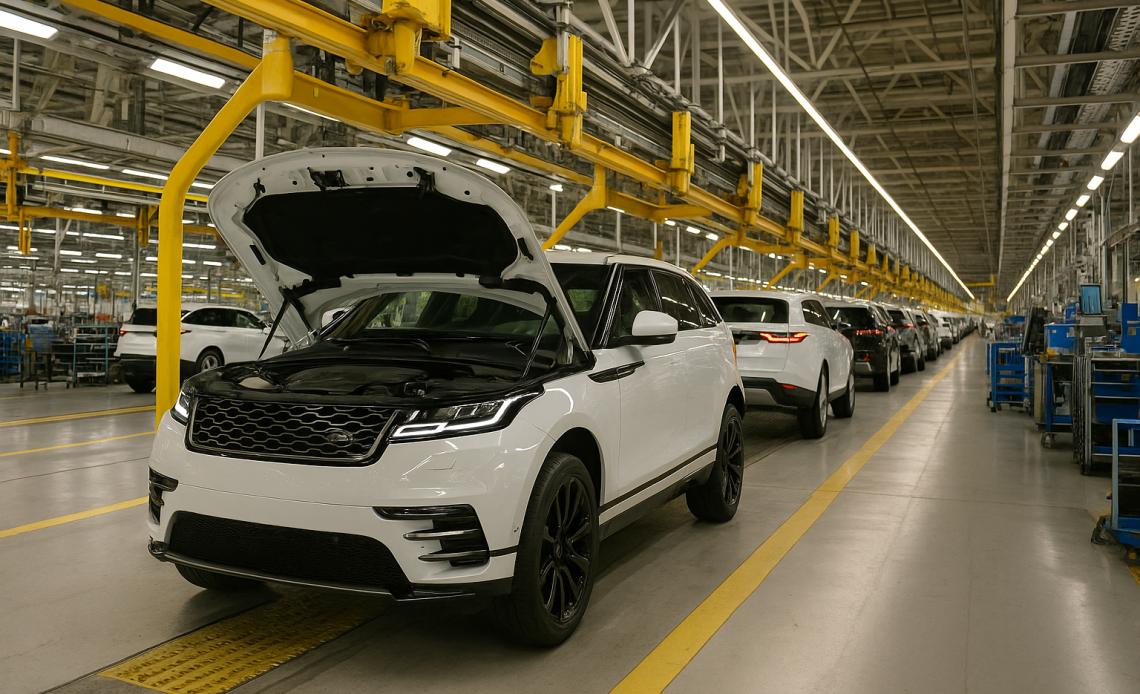
Jaguar Land Rover Automotive Plc (JLR) is restarting production at several UK sites after a major cyberattack halted operations for weeks, disrupting its global manufacturing network.
The outage, which began in late August, forced the Tata Motors-owned company to suspend production at factories worldwide, including plants in the UK, China, India, Brazil, and Slovakia.
The shutdown also triggered supply chain chaos and left thousands of jobs at risk.
The UK government later stepped in with a £1.5 billion ($2 billion) emergency loan guarantee to help JLR pay suppliers.
The move aimed to stabilise Britain’s manufacturing sector amid wider economic pressure but also reignited concerns about cybersecurity across the automotive industry.
Production restarts across West Midlands and other UK sites
JLR said engine and battery assembly at its West Midlands facilities would resume on Wednesday.
Stamping operations at Castle Bromwich, Halewood, and Solihull will also restart, along with body, paint, and logistics units that connect to the company’s global production system.
To cushion suppliers affected by the disruption, JLR introduced a new financing programme that provides cash-up-front options to boost their liquidity and prevent further delays in deliveries.
The company’s supply network—spanning multiple countries—had been severely hit, as its UK sites alone account for around 1,000 vehicles per day.
The interruption led to production delays of more than 30,000 vehicles and financial losses estimated at around £5 million in daily profits, according to industry analysts.
Cyberattack exposes weak links in the automotive supply chain
The late-August cyberattack marked one of JLR’s most serious operational crises in years.
It exposed the growing vulnerability of carmakers to digital threats, particularly those with complex, interconnected systems.
The breach forced shutdowns across several continents, affecting manufacturing lines and halting distribution.
Analysts said the incident highlights how cybersecurity lapses can quickly escalate into production and financial emergencies.
While JLR’s main IT systems are gradually being restored, the company’s experience has drawn attention to the need for stronger digital safeguards in an industry increasingly reliant on automation, data exchange, and AI-driven manufacturing.
The UK government’s rapid financial intervention was seen as an effort to contain the potential economic fallout.
Experts also noted that the loan guarantee, while providing short-term relief, could discourage smaller manufacturers from investing adequately in cybersecurity if state support is expected in future crises.
Wider impact on UK manufacturing and JLR’s global strategy
The shutdown dealt a blow to Britain’s industrial sector, which was already struggling with supply chain disruptions and weak demand.
UK factory output recently recorded its sharpest six-month decline, with JLR’s production freeze adding to the slowdown.
For the automaker, the timing was particularly difficult. It is currently navigating challenges such as higher US tariffs in its largest market and criticism over the rebranding of its Jaguar marque.
Production for Jaguar remains on hold until the company’s new all-electric lineup is ready, creating a temporary gap in its portfolio.
Despite the setback, JLR remains focused on stabilising its operations and maintaining its long-term growth strategy.
The automaker reported wholesale volumes of just over 400,000 vehicles last year and continues to prioritise investment in electrification, digital transformation, and supply chain resilience.
The cyberattack, however, serves as a warning that the success of such plans depends not only on innovation and demand but also on digital security.
The post JLR resumes UK production after cyberattack disrupts global supply chain appeared first on Invezz






